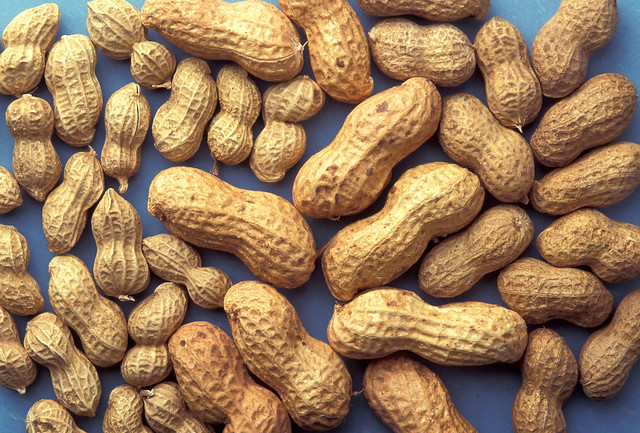
As baseball season gets into full swing, many fans enjoy traditional ballpark favorites like peanuts. But not everyone can safely savor this popular treat. Peanuts induce an allergic reaction in millions of Americans.
Peanut allergy is a major public health concern, especially for children. “This is the most common cause of anaphylaxis in children and has become more prevalent in recent years,” says recently retired Agricultural Research Service (ARS) food technologist Si-Yin Chung. Anaphylaxis is a potentially life-threatening allergic reaction that has a quick onset.
Allergy shots or other forms of immunotherapies are used as treatment, but may have limitations due to safety issues and side effects. Strict avoidance of peanuts is the primary strategy to prevent anaphylaxis, but total avoidance is not always possible. That’s because many food products may contain food allergens in small amounts due to cross-contamination according to Chung. Thousands of children visit hospital emergency rooms annually due to accidental ingestion of undeclared peanuts in foods.
Allergy treatments being explored include introducing small doses of peanut proteins by mouth or through a patch on the skin. The goal is to desensitize peanut-allergic individuals and induce the immune system to tolerate peanuts. To help reduce the possible side effect or risk of anaphylaxis in children during such treatment, it is important to use a less allergenic peanut extract.
Chung and his team at the ARS Southern Regional Research Center in New Orleans devised three simple methods to produce peanut and cashew extracts that contain less allergens. They used a chemical to separate major allergens from nut extracts and magnetic gel-like beads to bind and separate major allergens, and extracted a commercial peanut flour under a non-acidic condition.
“Our results showed that all treatments resulted in a peanut or cashew extract lacking one or two major allergens,” Chung explains. “We concluded that a less allergenic peanut or cashew extract could be produced using such methods.”
This research, published in Food Science and Nutrition in 2017, could benefit people with peanut allergies who may be able to tolerate a less allergenic peanut extract during immunotherapy.


